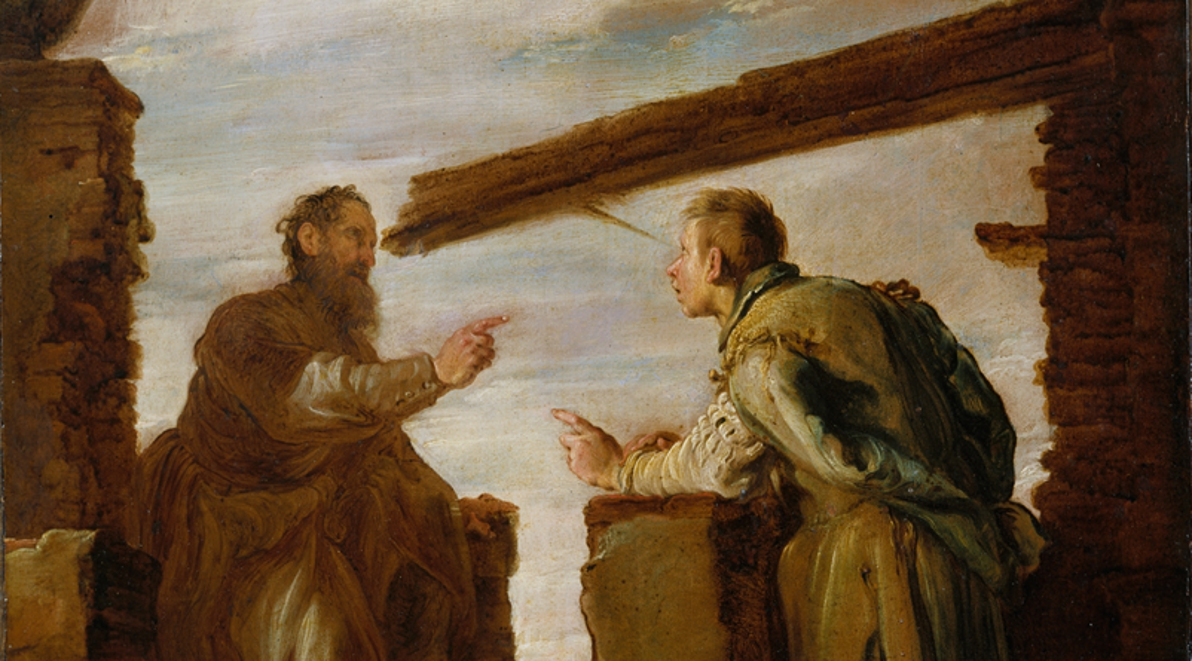I came across the problem quite accidentally. But there it was. A problem. Literally in black and white and undeniably a problem, a problem defined as a serious breach of ethical standards. Probably not illegal, but definitely unethical. Now, I was fairly certain – and all the more so now – that the breach of ethical standards was unintentional. Nevertheless, a breach it was, and it is a problem. I don’t know the perpetrator of the problem, but I know the organization under whose work the breach was committed, and I appreciate the good it does. So, I made the report, a suggestion to someone in the organization I know that something ought to be done to repair the breach. Yes, it might take some time, cost some money, and offend the unintentional culprit. He said he’d get back to me and it could be next week.
I am nervous.
At first, I questioned my integrity in even raising the issue. That’s where the mote and beam came in. The photo above is of a painting by Domenico Fetti, a baroque painter, circa 1619. Fetti was Italian and the painting is one in a series from the parables of Jesus. The English translation of each parable is typically from the King James Bible, hence the title Mote and Beam. (How wilt thou say to thy brother, Let me pull out the mote out of thine eye; and, behold, a beam is in thine own eye? Matthew 7:4 KJV)
Was I questioning a mote in my brother’s eye when all along I have a beam in my own? Mote and beam, speck and log, who am I to point out a breach of ethical standards? Except in this case, if not many others, there is no beam, not even a mote, in my eye. In fact, I am helping the organization I appreciate to repair a breach. Good work.
So why my nervousness? Scripture was not done speaking to me. The Apostle Paul begins his letter to the Galatians with some necessary mote and beam work – the Galatians have deserted the gospel of grace for a message of merit, a breach of unearned love by an insistence on jot and tittle observation of the law. Paul measures out some judgment upon the Galatians.
We get a sense, though, that Paul is a little nervous about what he has done. How much easier it would have been to say nothing or to affirm the good work the Galatians were doing in their community. How much better to be approved by those he must address. But then he writes, “Am I now seeking human approval or God’s approval? Or am I trying to please people? If I were still pleasing people, I would not be a servant of Christ.” (Galatians 1:10 NRSVUE)
Paul knows me. He knows how much I crave human approval, how much I want to please people. My nervousness in pointing out the problem was not that I might be exposed as a hypocrite, but that I might be thought of as not nice.
Mote or beam? Not this time. Craving approval and seeking to be pleasing. Guilty again.

